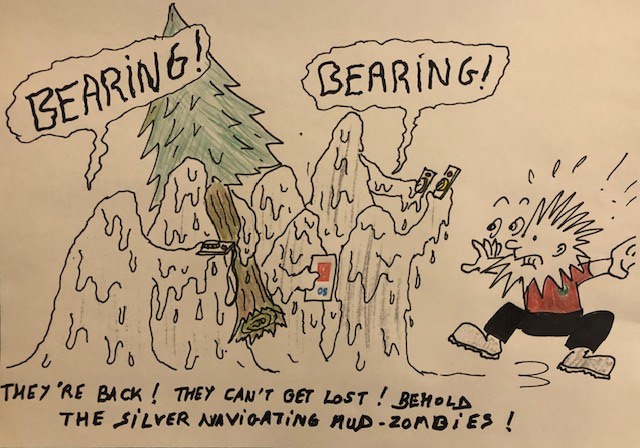Episode 5 – ‘You’re qualified as a Search Technician, so what’s next?’

Having made it through the basic training and become operational, were we ready for more? Well after a few months apparently so. For some of us our professional day jobs led us to the area of specialisation, for others it was areas that had sparked interest, for some it was when they asked people to step forward to volunteer they just didn’t step back quick enough.
As a new recruit I remember the 1st navigation training session, thankfully it was theory, in our HQ so I wasn’t going to get too lost. But to have a compass and a map and try and make something of them both, it was going to be a challenge to say the least. A couple of hours in and I still couldn’t work out why or how these 2 things worked together. After weeks of practice, hours of walking, staring at maps, learning OS symbols, turning compass bezels round and round until they made sense, taking bearings and using tech tools to confirm your thinking, it finally all started to make sense. But this was still basic navigation at Bronze level. The learning that you are never lost, you just might not be where you thought you were was comforting. Now with a map and compass at least I could work out where I actually was and start from there. I hadn’t quite appreciated that the navigation role in a Search and Rescue team was as key as it was. I had imagined the nav person got the team to an area, kept an eye on the tracks and got them back. The reality is that the team need to rely ‘nav’ to record the searches, points of interest, give coordinates and plan routes in and out for support teams and emergency services when required. So to have the confidence to take on that responsibility on a search does give you a massive sense of achievement. 10 months on from that 1st nav session a group of us went off and got our NNAS Silver Navigation Award. We didn’t get lost that’s for sure. We did however get swamped in mud in the process, but we came out the other side with more confidence in our advanced navigation skills.
Navigation is just one example, for others in the team it’s advanced medical training as Lowland Rescue First Responders, or Team Leaders, Drone Pilots, Boat or Water safety crew.
Does it stop there? Not a chance, once we become proficient in our new skills we will continue to learn. The time and effort put in by every volunteer to extend their knowledge and skillset results in the team being able to expand it’s capabilities.
In this way we can make sure that as your Bucks Search and Rescue team we are always ready to respond with the right level of resources and skills, as quick as possible to help in the search for a missing vulnerable person.
